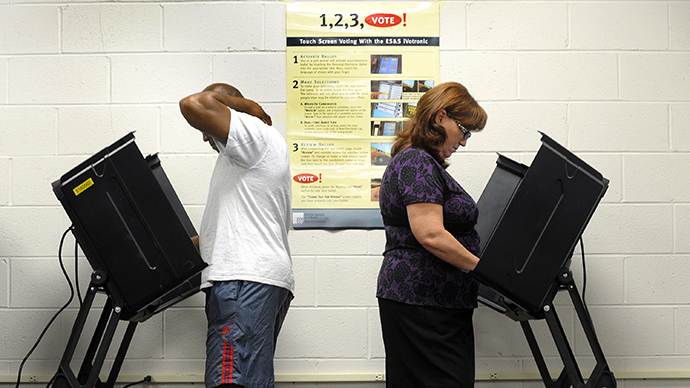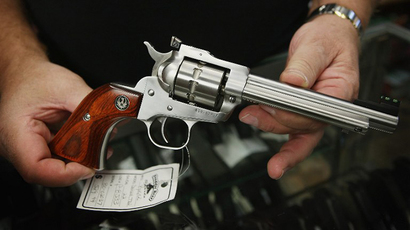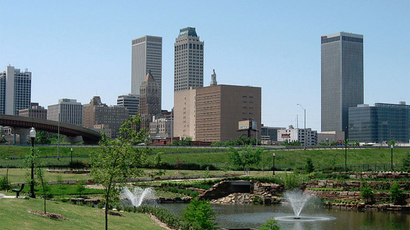North Carolina governor approves new voter ID law

The state of North Carolina has signed a new election measure into law which requires government-issued photo IDs at polls, as well as the shortening of early voting periods. The move has already been criticized by the NAACP and the ACLU.
Republican Governor Pat McCrory signed the new measures on
Monday, without a ceremony and without the presence of
journalists – despite the fact that such state legislature
signings often include both.
According to supporters of the new law, the legislation is
designed to combat voter fraud, which North Carolina’s Republican
lawmakers say is a rampant issue across the state.
The measures were proposed immediately following a 5-4 US Supreme
Court decision in June which ended the enforcement of the
landmark Voting Rights Act of 1965 – a piece of legislation which
had been enacted to outlaw racial discrimination against voters.
The Voting Rights Act was aimed at states mostly in the south -
including North Carolina - which had traditionally been the scene
of widespread voter suppression of black and minority voters
prior to the civil rights movement.
Special enforcement under the federal Voting Rights Act meant
that states like North Carolina previously had to receive advance
approval before signing any changes to voting laws.
Governor McCrory appeared in a 95-second message on YouTube on
Monday which focused on the state’s new voter identification
rules.
The first-term governor cited laws that require people to present
photo IDs to board airplanes, cash a check, or apply for
government benefits. “Our right
to vote deserves similar protection,” McCrory said in the
video.
The ACLU and two other groups have already announced that they
will be filing suit against portions of the state’s new voting
reforms.
“It is a trampling on the
blood, sweat and tears of the martyrs — black and white — who
fought for voting rights in this country,” said the Rev.
William Barber, president of North Carolina’s chapter of the
NAACP, which is also pressing its own legal challenge according
to AP. “It puts McCrory on the
wrong side of history.”
Barber called the Republican-backed measure one of the worst
attempts in the nation at voting reform. He told AP that the
NAACP considered the state’s package an attack on existing laws
that had come to be seen as a model for voter participation.
Though supporters of the bill’s provisions have pointed to
widespread voter fraud, few documented cases have been prosecuted
within the last decade.
According to the Verified Voting Foundation, some seven million
ballots were cast in North Carolina in 2012. The state Board of
Elections said that 121 cases of alleged voter fraud were
forwarded on, accounting for 0.00174 percent of total ballots.
In 2010, a year which did not include a presidential election,
3.79 million ballots were cast in North Carolina, with 28 cases
of alleged voter fraud turned over to the appropriate district
attorney’s office.
Despite a lack of data pointing to such widespread voter
irregularities, the state’s new voting reforms are set to take
effect in 2016.
Along with the new requirement for voters to present photo IDs at
the polls, early voting would be shortened by a week and the
state would end same-day voter registration - requiring eligible
voters to register and make any necessary changes at least 25
days prior to voting.
The new measures will also eliminate a high school civics program
that currently registers tens of thousands of students to vote
each year ahead of their 18th birthdays, AP reported.
Beyond changes at the voting booth, North Carolina is also set to
scrap limits on corporate donations to political parties and
increase the cap on individual campaign donations from $4,000 to
$5,000.














